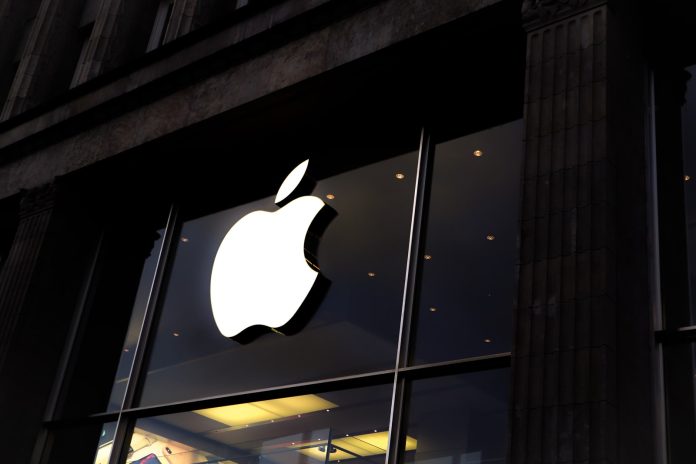
The smartphones and devices we now rely upon every day have become integral to our lives and for many people how well the devices perform is something that is easily noticed. We spend considerable amounts of money on technology and communication devices, so when they fail to live up to expectations it can create a media frenzy, one such frenzy is currently gaining speed once more for Apple.
Batterygate
Apple has for some time now been facing ever-increasing legal woes with regard to an issue that has emerged with their older devices. The whole situation has garnered the name, Batterygate, and is centered around the deliberate slowing of their processors on older devices. Apple says the slowdowns are to prevent their devices from shutting down from excessive battery demand in devices with older batteries. Opponents have taken the view that Apple’s actions in doing so are an attempt to use planned obsolescence.
Would you prefer a phone that reboots due to battery degradation, or one that continues to run but at a lower performance? Given how important phones and internet communication devices have become to us and the society in which we live. It wouldn’t at first appear to be such a hard question to answer, but it has become a big legal issue for Apple.
Changes have been made by Apple to the phone’s iOS which is responsible for battery management. During a recent update, Apple returned control over the application of processor throttling to the user and it can now be disabled within the phone’s settings.
This issue has been bubbling away for Apple since the end of 2016 when iPhone users began reporting that the recent update to iOS had caused their phones to experience shutdowns when the battery still had 30% capacity remaining.
Apple’s Latest Legal Challenge
There have been many legal proceedings so far in Batterygates history, the latest is being pursued by Justin Gutmann. It is in the form of a collective action that it is hoped will enable as many as 25 million UK residents to claim compensation for their battery woes from Apple. It is being claimed that Apple in fact degraded the performance of their smartphones in a secret move to improve the battery life and avoid issues from substandard batteries.
With Bloomberg reporting Justin Gutmann’s lawyers have estimated the worth of the claim to be £768 million. Justin Gutmann, a market researcher, took the case out against Apple as he was unhappy with the update to iOS that is responsible for throttling software on iPhone handsets.
With the trend in modern smartphones being one of constantly looking forward to your next handset upgrade, it’s very easy to see how a slowdown in iPhone user’s handsets would be a strong motivating factor for them to go in search of an upgrade device. This would obviously be something Apple would benefit from in increased sales of its latest handsets.
Handsets Involved
This latest legal attempt against Apple is being centered around the following handsets:
- The iPhone 6, 6 Plus, 6S, 6S Plus,
- iPhone SE,
- iPhone 7, 7 Plus,
- iPhone 8, 8 Plus
- iPhone X models
It is claimed in the case that all these iPhone models were affected by the application of the processor throttling update and resulting slowdown.
During an interview, Justin Guttmann said to the Guardian newspaper
“Instead of doing the honorable and legal thing by their customers and offering a free replacement, repair service or compensation, Apple instead misled people by concealing a tool in software updates that slowed their devices by up to 58%”…
He went on to say “I’m launching this case so that millions of iPhone users across the UK will receive redress for the harm suffered by Apple’s actions. If this case is successful, I hope dominant companies will re-evaluate their business models and refrain from this kind of conduct.”
Justin Guttmann has applied to the Competition Appeal Tribunal and if they give the go-ahead for the case, Apple will need to brace itself for yet further legal battling to come.
Apple has already been sued in various American states by customers and their representatives. They have also been to court in Italy to defend against action brought by a consumer rights group within the country. Costs and payouts from these legal cases have amounted to over $420 million for Apple.
Apple responded to the guardian by saying: “We have never – and would never – do anything to intentionally shorten the life of any Apple product, or degrade the user experience to drive customer upgrades,” They then went on to say “Our goal has always been to create products that our customers love, and making iPhones last as long as possible is an important part of that.”
Apple iPhones have now received updates to iOS, with new features accessed from the settings menu where users can see reports about battery health and if processor throttling is being applied to the handset.
Apple has also offered battery replacements for iPhone models, though this has not quelled the ill-feeling towards the tech giant.
Future Implications
Whatever you use your iPhone for, like social media, online shopping, or searching for the best deals like these casino offers, this news has shocked Apple fans globally. If that shock translates into fewer sales for the company’s products and in turn, a boost for other smartphone manufacturers remains to be seen. What is clear is that when a company’s product is delivered to billions of customers worldwide and an issue becomes apparent, companies that take the approach of a software solution to the issue can expect to face scrutiny over their decisions. Tech updates that affect the performance of devices may face legal complications in the future.
What this means for the smartphone industry in the future is unclear, but it will be something that undoubtedly will reflect on the future products made available by these companies. In an industry where bleeding-edge tech has traditionally been released early with the view that later updates and patches can be used to fix any problems, and that may need a re-think.








